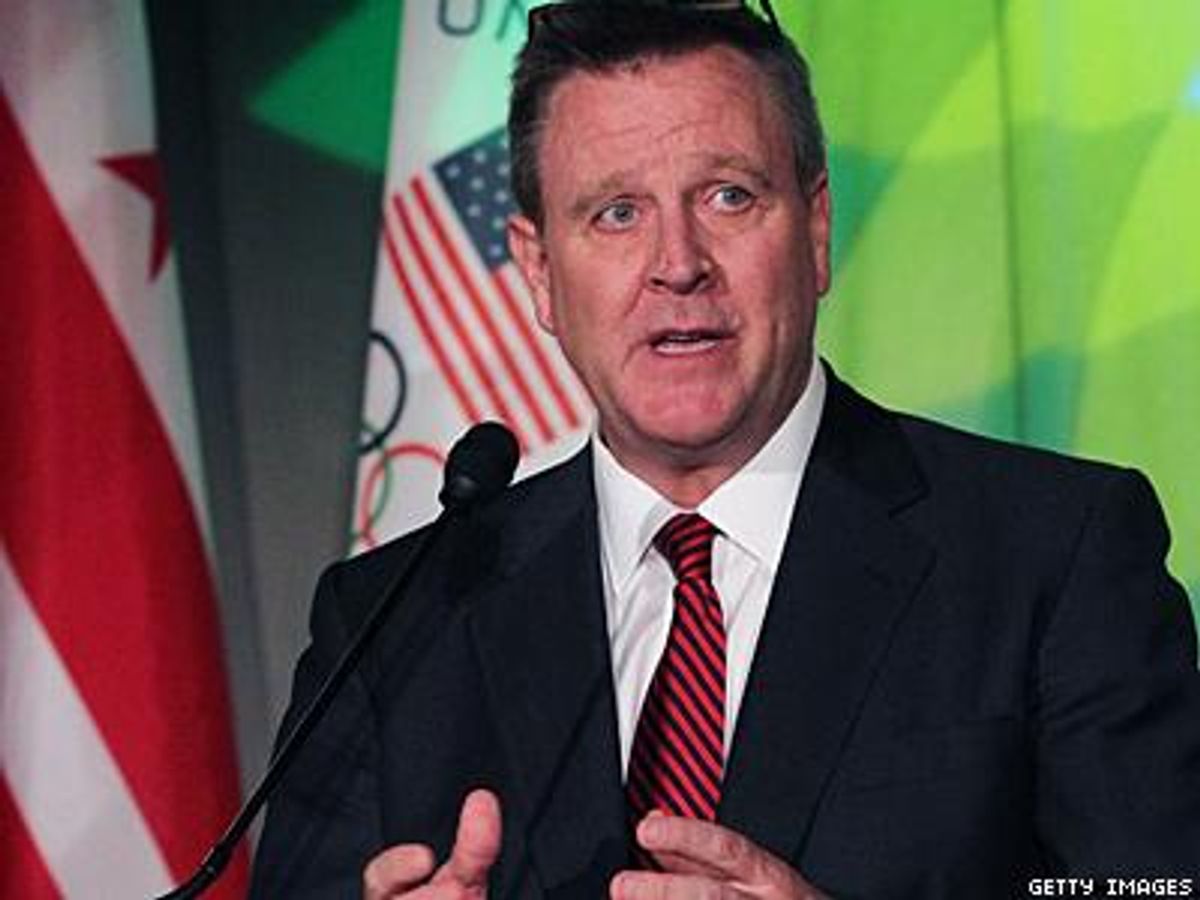The head of the U.S. Olympic Committee says he expects athletes to "comply with the laws" of Russia during the Winter Olympics in Sochi, including the oppressive so-called gay propaganda law recently adopted in the nation, although exactly what compliance means remains unclear.
"The athletes are always going into countries with laws different than his or her own country," Scott Blackmun, CEO of the committee, told Russian news source R-Sport this week. "They're going to agree with those laws in some ways, they're going to disagree with those laws in other ways. It's our strong desire that our athletes comply with the laws of every nation that we visit. This law is no different."
Some opponents of the law have announced plans to protest by wearing pins or armbands with LGBT-supportive slogans and images or holding hands with members of the same sex, but Blackmun did not go into what would constitute compliance or noncompliance with the law. The USOC is "looking to the [International Olympic Committee] for some leadership in this issue," he told R-Sport. "They have been in discussions with the Russian authorities, so we're awaiting for some clarification from them."
An IOC spokeswoman earlier this week cited a rule from the Olympic charter saying "no kind of demonstration or political, religious or racial propaganda is permitted in any Olympic sites, venues or other areas," indicating that athletes who protest Russia's antigay law could be disciplined or disqualified. However, another IOC official told website LGBTQ Nation the committee's position has been mischaracterized and that athletes would not be punished for hand-holding or wearing certain items.
"The official said that Rule 50 applies to 'egregious' behavior, and that a protest or demonstration from the podium, such as an athlete openly denouncing the Russian Government or an impromptu display during an event or the opening or closing ceremonies, would be seen as a violation of the rule," LGBTQ Nation reports. The article characterized the speaker as a "high-ranking official" with the IOC who would not allow his name to be used.
The Russian law, passed this summer, prohibits any "propaganda of nontraditional sexual relations" that could be accessible to minors. It has been interpreted as banning LGBT pride parades or public demonstrations, and even any public discussion of LGBT issues or identities, with violations punishable by fines and jail terms.


















































































Viral post saying Republicans 'have two daddies now' has MAGA hot and bothered